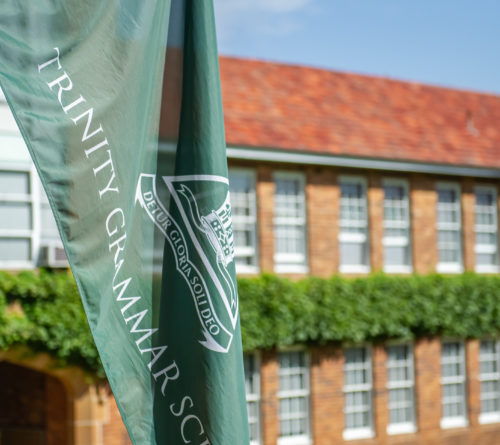Academic Focus
ACADEMIC GROWTH PART 4 – MAKING GROWTH VISIBLE
Over the course of this term, I have attempted to explain the concept of academic growth at Trinity. So …what was the single most important message I wished to communicate? Undoubtedly, it is the value we place upon, and how we prioritise, each student’s personal academic growth. At Trinity, academic growth is about coming to understand yourself as a confident and competent learner – an ‘expert learner’:
- My capacity for deliberate engagement
- My skills to manage deep learning
- My disposition to embrace challenge
- My expanding repertoire of what I know, understand and can do
As I conclude this series about academic growth, I would like to focus upon the final point in this intertwined set of pillars: how we work to make visible to students the progress they have achieved, or the growth they have made, in terms of their four areas. At the end of every year, semester, term or even lesson, students should be able to say what they now know, or understand, or can do, both about themselves and the curriculum, that they could not at the beginning of the year, semester, term or lesson.
It is this aspect of growth that drives our reporting strategies. Regularly, we will use TAPP, the Trinity Assessment Parent Portal to share assessment feedback with parents and encourage robust conversation about learning. Each semester, we will provide feedback about relative growth in discipline specific knowledge, understanding and skills, as well as generic academic engagement behaviours. Each semester we will collate this information to track not only an academic grade point average, but also an engagement point average. Finally, we will provide personalised ‘next steps for learning’ to support students to take action for further growth. Our intention is that every student is supported to ‘see’ their growth and that every student has concrete information they can use to set goals and take charge of their own academic growth. As you receive data via TAPP, and prepare for Semester Reports next term, I encourage you to look through this powerful lens of growth.
Lev Vygotsky, one of the twentieth century’s most brilliant educational theorists, said that ‘children grow into the intellectual life around them.’ Trinity understands a rich intellectual life as one that promotes intrinsic engagement rather than imposed tasks, depth rather than superficiality, challenge rather than ease. And, for those who are the custodians of this intellectual life, the responsibility is to make visible the success of every boy’s learning endeavour, when it is honest and sincere. Our ultimate vision for academic growth, then, is that all young men of Trinity grow surely and deeply into this kind of intellectual life.
Deborah Williams | Academic Dean
















